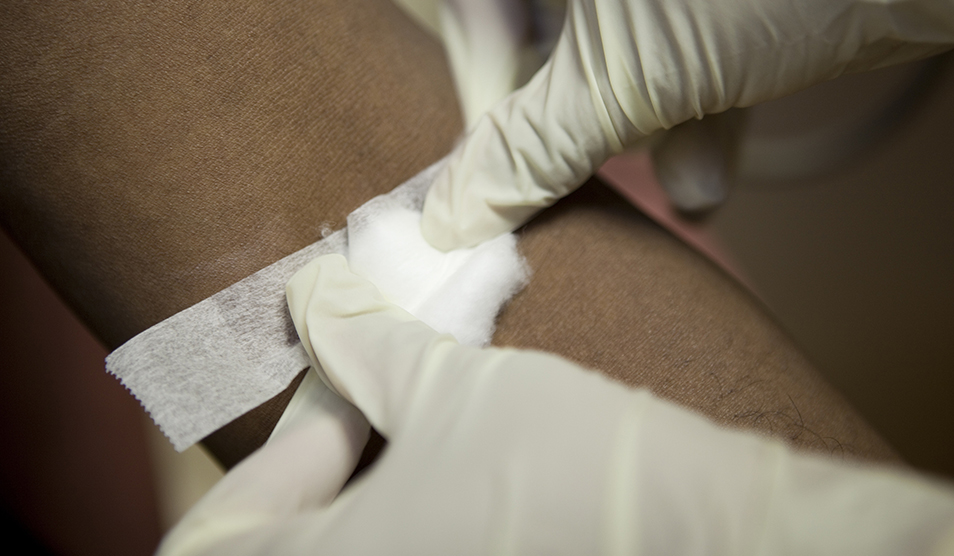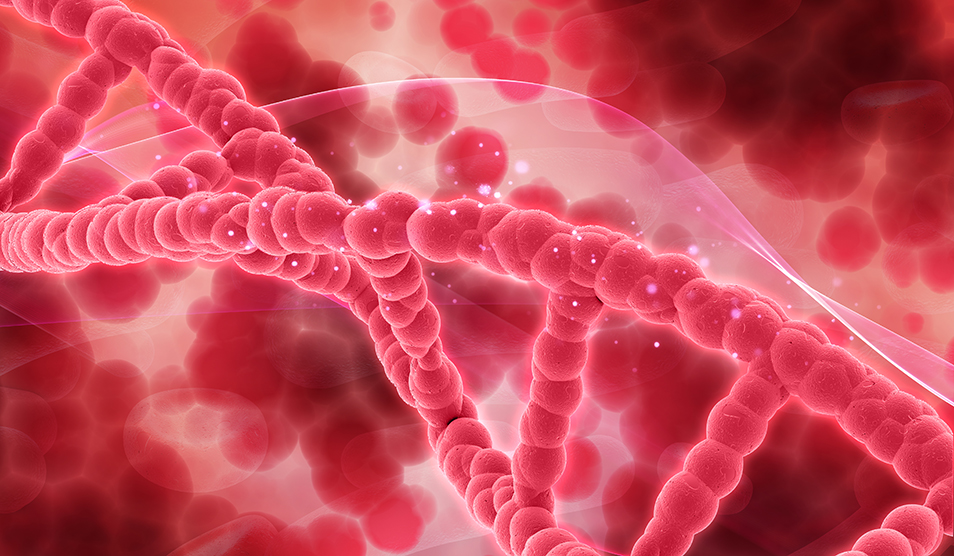Children's allergy
Contact
- Outpatients appointments
- 020 3313 5000
Visitor Information
Translation help:
To translate this page into your preferred language, click the Google Translate icon in the top-right menu and select your desired language.
Our children’s allergy and respiratory medicine service at St Mary’s Hospital is one of very few centres in the UK to provide a comprehensive service to children and young people with allergic and respiratory disease. We offer additional clinics at Hammersmith Hospital.
The allergy team has been recognised and accredited as a World Allergy Organisation Centre of Excellence for providing excellence in education, research and training in allergy, asthma and clinical immunology.
We have particular experience in treating complex, multisystem allergic disease. Patients and their families benefit from a holistic, multidisciplinary team approach which emphasises education and empowerment of patients, parents and carers. The children’s allergy team ensure patients are looked after in the best possible way, without having to attend numerous different clinics.
Where possible we try to avoid admitting children to hospital by offering an ambulatory service on our allergy day unit.
Our multidisciplinary team includes 10 clinical nurse specialists, dieticians and a dedicated speech and language therapists. We work closely with our colleagues in the children’s ear nose and throat, respiratory, gastroenterology, dermatology and ophthalmology services.
Conditions we treat
The service provides a thorough assessment of children with the full spectrum of respiratory and allergic conditions, including:
- food allergies
- complex gastrointestinal allergies
- drug and other allergies
- asthma
- eczema
- allergic rhinoconjunctivitis (hay fever)
- any chest problem (acute or chronic)
- urticaria (hives or nettle rash)
- angioedema (swelling)
Treatments for these conditions include:
- allergen immunotherapy to modify the immune system's reaction to allergens
- omalizumab and other immunomodulatory medications to treat severe asthma
- day case treatment and review for children with severe eczema and multi-system allergic disease requiring intensive monitoring
- education on how to use devices such as inhalers and adrenaline auto-injectors for severe allergic reactions, and allergy action plans
Clinics
Children’s allergy clinic at Hammersmith Hospital
Address
Children’s outpatients
Ground floor
Block D
David Harvey unit
Hammersmith Hospital
Du Cane Road
London W12 0HS
Hours
Morning clinics start at 09.00 and afternoon clinics begin at 13.30, Monday through Wednesday.
Children’s allergy clinic at St Mary’s Hospital
Address
Children's outpatients
Sixth floor
Queen Elizabeth Queen Mother (QEQM) building
St Mary’s Hospital
Praed Street
London W2 1NY
Hours
Morning clinics start at 09.00 and afternoon clinics begin at 14.00, Monday through Friday
Contact
For queries about outpatient appointments:
Phone: 020 3313 5000
Allergy day unit: This phone number is for current patients and GPs who need non-urgent clinical advice. Please leave a message with your telephone number and the team will return your call within 48 hours.
Phone: 020 3312 6091
Food challenges: Call the food challenges line if you or your child are a patient with our allergy service and have queries about upcoming food challenges.
Phone: 020 3311 6611
Meet the team
Consultants
Professor Adnan Custovic
Dr Leanne Goh
Dr Claudia Gore
Dr Sharon Hall
Dr Nandinee Patel
Dr Helen Cox
Dr Marta Vazquez-Ortiz
Dr Robert Boyle
Professor Paul Turner
Dr Dominika Murgasova, locum consultant
Network consultants who work regularly with the team:
Dr Abbas Khakoo, consultant paediatrician, special interest in allergy
Dr Umsunthar Thisanayagam, consultant paediatrician, special interest in allergy
Specialist registrars
One specialist registrar and one clinical fellow work within the team at any time.
Dietitians
Justine Dempsey
Samantha Blamires
Aisling Phelan
Nurses
Clare Jackson, senior paediatric allergy clinical nurse specialist
Ferdinand Morales, senior paediatric allergy clinical nurse specialist
Lucy Underhill, senior paediatric allergy clinical nurse specialist
Stacy Wilkinson, paediatric allergy nurse specialist
Shannen Forry-Purvis, paediatric allergy clinical nurse specialist
Gemma Kuru, paediatric allergy clinical nurse specialist
Christianne Daniel, paediatric allergy clinical nurse specialist
Psychologist
Dr Philippa Moss
Patient information
Before your appointment
As a parent or guardian, you should attend all appointments with your child if they are under the age of 16.
Any anti-histamine medicines should be stopped for at least five days before attending the clinic to enable us to perform accurate skin tests. We ask that you take photographs of any visible symptoms such as skin rashes and bring the photos to your child's appointment, as this will help us make a diagnosis.
If food is suspected as a cause, bringing the specific foods will also help us in testing. This should include any food packaging that lists ingredients. You should also bring a sample of any other materials or products you suspect may have caused a reaction (i.e. goggles, toys, cosmetics, jewellery etc.).
Please bring all medicines and creams that have been prescribed and your child’s ‘red book’.
Check your appointment letter for anything specific you may have been asked to bring. In general it would be helpful if you could bring the following:
- your full address and telephone number(s)
- your appointment card and/or appointment letter
- your GP’s name and address
During your appointment
Children will usually see a number of professionals on the same day and will have allergy skin testing if appropriate or required. Therefore, the total time of the appointment can be two to three hours in some cases.
Please note that we are a teaching hospital, so medical students may be present for some appointments. If you do not wish to have them in the room please let the nurse or doctor know and the students will be asked to step outside.
The appointment will involve a doctor taking a detailed history of symptoms and the likely triggers. Details of similar problems affecting family members and of the home environment will also be requested.
A doctor or nurse will likely perform a test during the appointment. Tests may include:
- Allergy skin tests: Normally children will undergo allergy skin tests. If skin tests are not possible or give confusing results a blood allergy test may also be required
- Food challenges: As part of our allergy service, we perform food challenges in a safe environment with highly trained and experienced staff. A food challenge is the most accurate way to diagnose a food allergy. During the test patients are given the food to which it is suspected they are allergic in gradually increasing amounts to see how they react. Many young children grow out of allergies and we use food challenges to assess if a previously diagnosed allergy can be ruled out in older children to improve their quality of life
- Lung function tests: Children with asthma will be asked to perform lung function tests, which involve blowing as hard and as long as possible through a tube. We try to make this enjoyable for children by using computer images, such as bursting balloons or playing skittles
Other tests and investigations include:
- blood tests
- full immunodeficiency testing
- exhaled nitric oxide (eNO) measurement test for allergic asthma
- state-of-the-art polysomnography to monitor breathing patterns during sleep
After your appointment
Following tests, advice will be given on avoidance of allergy-provoking factors. In the case of food allergies this will involve our allergy specialist dietitian. If medications are required an action plan will be provided and we will provide training on how to use devices such as inhalers and adrenaline auto-injectors for severe allergic reactions.
Videos for patients
Share this video with your child to help them learn what to expect during an allergy skin test.
This video will help your child learn what they can expect during a lung function test.
Patient information leaflets
- Dietary advice for cow’s milk allergic children who tolerate baked milk
- Dietary advice for egg allergic children who tolerate well cooked egg
- Drug challenge - what you need to know
- Following your allergic (reactive) food challenge
- Following your tolerant (not allergic) food challenge
- Following your inconclusive food challenge
- Food challenge - what you need to know
- Introducing a new food at home
- Nut biscuit recipe
- Soya ladder
- Wheat ladder
Refer to this service
GP
Please use NHS e-Referrals to refer a patient to our service.
Referrals to our paediatric allergy service should be made if a patient shows any of the following:
- faltering growth in combination with any other gastrointestinal symptom suggestive of food allergy
- no improvement in symptoms in response to a single elimination diet
- one or more acute systemic reactions suggestive of anaphylaxis
- one or more severe delayed reaction
- acute food allergies and asthma
- asthma not responding to moderate doses of inhaled steroids
- significant eczema where multiple food allergies are suspected
- persistent parental suspicion of food allergy especially in children with difficult or perplexing symptoms
- hayfever or rhinoconjunctivitis which doesn’t respond to first line medications such as non-sedating antihistamines and nasal corticosteroids
- suspected allergy to a medicine or anaesthetic agent
- systemic allergic reaction to an insect sting, e.g. wasp or bee
- chronic idiopathic urticaria or physical urticaria which doesn’t respond to treatment with non-sedating antihistamine
- typical symptoms of acute food allergy develop <1 hour after exposure, and include the development of urticarial and/or angioedema, breathing difficulties, vomiting, abdominal pain, diarrhoea or cardiovascular collapse after ingestion of allergenic foodstuff
- GPs should recognise that not all anaphylaxis is associated with rash.
When referring please ensure you tell us if the patient also suffers from asthma, hay fever or eczema and provide details of any food reactions or drug allergies.
Please also provide a list of all medications and creams prescribed.
If food is suspected as a cause, please ask patients to bring the specific foods to their hospital appointment as this will also help in testing. This should include any food packaging that lists ingredients.
GP advice
If you have questions about a patient or a referral, please call 020 3312 6650.
Community outreach
We have developed and implemented a unique integrated care pathway programme with training and support for carers, nurseries, schools and health professionals to ensure consistent delivery of the highest standard of care.
Clinical trials and research
You may be asked whether you and your child are willing to participate in a study. If you do not want to participate it will not in any way affect the management of your child’s allergic problem. Current examples of our research and clinical trials relating to allergy and respiratory medicine can be found on the paediatric research unit page.
Further online resources
Latest news See all news
-
 Read the full story
Read the full storySt Mary’s trialling 15-minute blood test for life-threatening conditions in children
St Mary’s Hospital is one of three hospitals involved in an NHS trial to find out if an innovative 15-minute blood test can diagnose children with potentially life-threatening infections.
-
 Read the full story
Read the full storyFinalists at HSJ Digital Awards
Imperial College Healthcare has been shortlisted for five HSJ Digital Awards.
-
 Read the full story
Read the full storyWorld-first gene-editing treatment for blood disorders including sickle cell disease approved for use in the NHS
NICE has today approved a gene-editing treatment for use with NHS patients over the age of 12 with a severe form of sickle cell disease.

